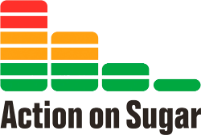Public Figures
We'd like to thank the following public figures for their support of Sugar Awareness Week 2021:
 Amanda Ursell RNutr, Registered Nutritionist:
Amanda Ursell RNutr, Registered Nutritionist:
"As a nutritionist, it's not surprising that I keep a close eye on the sugar, in my children's meals and snacks and so I know and understand first-hand, how challenging it can be to keep within the recommended maximum intakes. It takes effort and time and developing a bit of a 'Teflon coating' to the requests for puddings, sweets, biscuits and so on, which children not surprisingly, ask for. In my experience though, it's worth being the 'baddy' and being consistent about limiting sugar-rich foods and drinks because children do eventually get used to having occasional sugary treats, rather than them being part of everyday life. The really hard part of course, is setting a good example; we can't expect children to go steady on sweet foods and drinks, if we are tucking in ourselves; this is where the real will power comes in!"
https://www.amandaursell.com IG: @amandaursellnutrition Tw: @AmandaUrsell
Azmina Govindji, Award-winning Dietitian and Nutritionist

Snacking is often considered taboo - but it all depends on what you choose to snack on! There's nothing wrong with planned, wise snacking. However, it pays to look at the small print and understand what's really behind the packaging. Look for words like maple syrup, honey, agave, dextrose, molasses, natural brown sugar, and treacle – these are all free sugars which we should be limiting for good health. Let's work together so we help the food industry create more lower sugar yet tasty snack options that also offer nutritional benefit
https://azminanutrition.com IG: @azminanutrition Tw: @AzminaNutrition
Charlotte Radcliffe RNutr, Registered Nutritionist

It is staggering how much sugar is consumed on an annual basis, particularly when it comes to children’s diets. Snacks are a key component of this and it is increasingly difficult for parents to navigate through the vast choice available, the marketing claims that come with them, and the 50+ ways sugar can be described. There have been lots of initiatives within the food industry over recent years to reduce sugar, but we need to see more progress and more commitments across a wider number of companies, and I support Action on Sugar’s campaign to raise awareness and demand change."
https://thenutritionconsultant.org.uk IG: @the_nutrition_consultant Tw: @Nutr_Consultant

Chris Bavin, Television Presenter for Eat Well for Less? on BBC One
"The growth of snacking and the snacking industry is one of the biggest changes I have seen in my lifetime. As a parent I know the pressure we can be under from children to get them certain sugary treats! We need to make snacking healthier and easier for parents to understand what they are giving their child
Dr Sarah Jarvis, GP and Television Doctor
"In 31 years as a GP, it has been impossible to ignore the rising levels of obesity of our population, which drive both ill health and health inequalities. Refined foods and added sugars play a major part in driving obesity and the health problems it brings. I fully support Action on Sugar’s work to reduce the nation’s sugar consumption and to drive the national conversation about the quality of the food we eat
Healthy food does not need to be costly food and the part played by Sugar Awareness Week in raising awareness and encouraging both the government and the food industry to examine the way we all eat is welcome."
Tw: @DrSarahJarvis
Priya Tew RD, Dietitian

Rhiannon Lambert RNutr, Registered Nutritionist
-350x442.jpg)
- Instead of sugary, fizzy drinks and juice drinks, go for water or unsweetened fruit juice. Remember to dilute fruit juices for children to further reduce the sugar
- Choose wholegrain breakfast cereals but not those coated with sugar or honey
- If you take sugar in hot drinks or add it to cereal, gradually reduce the amount until you can cut it out altogether


